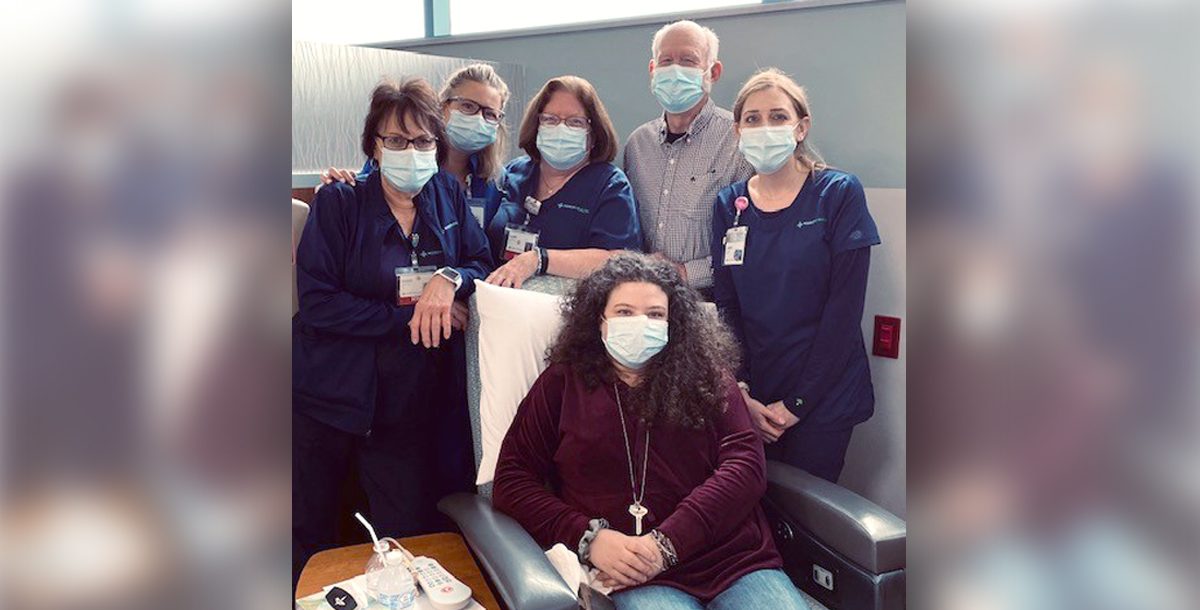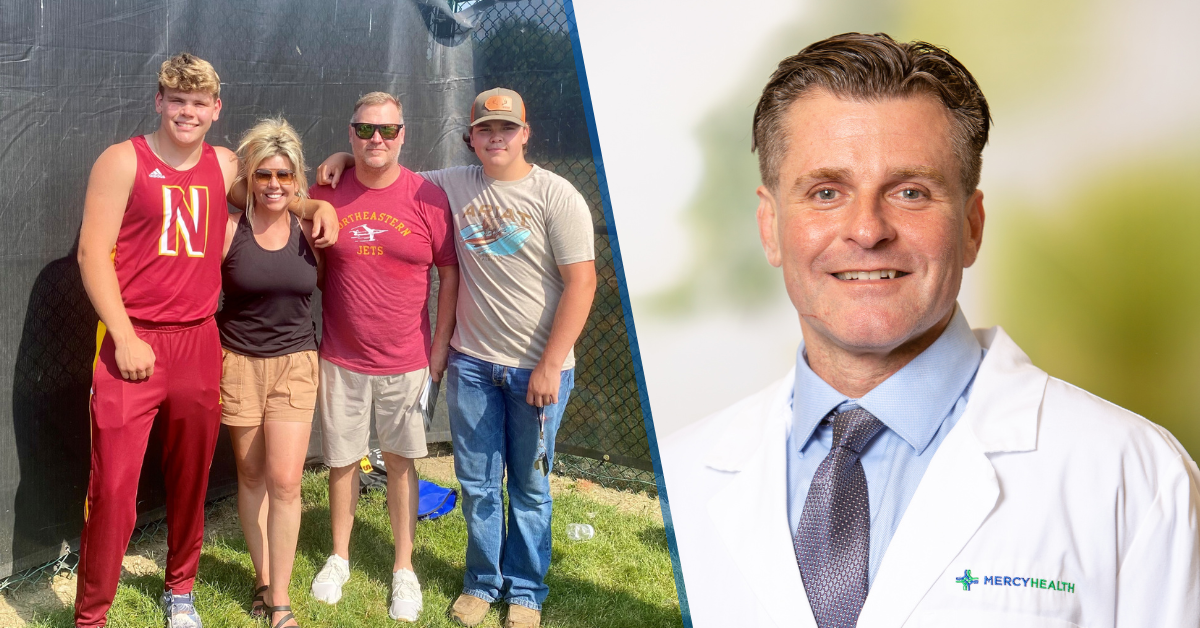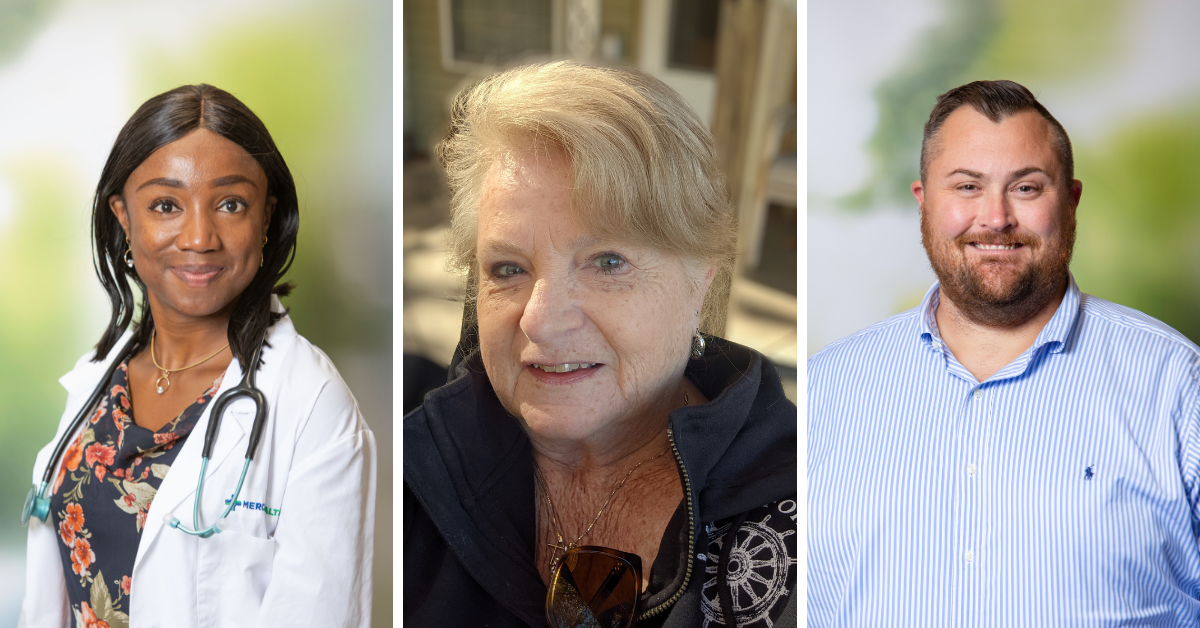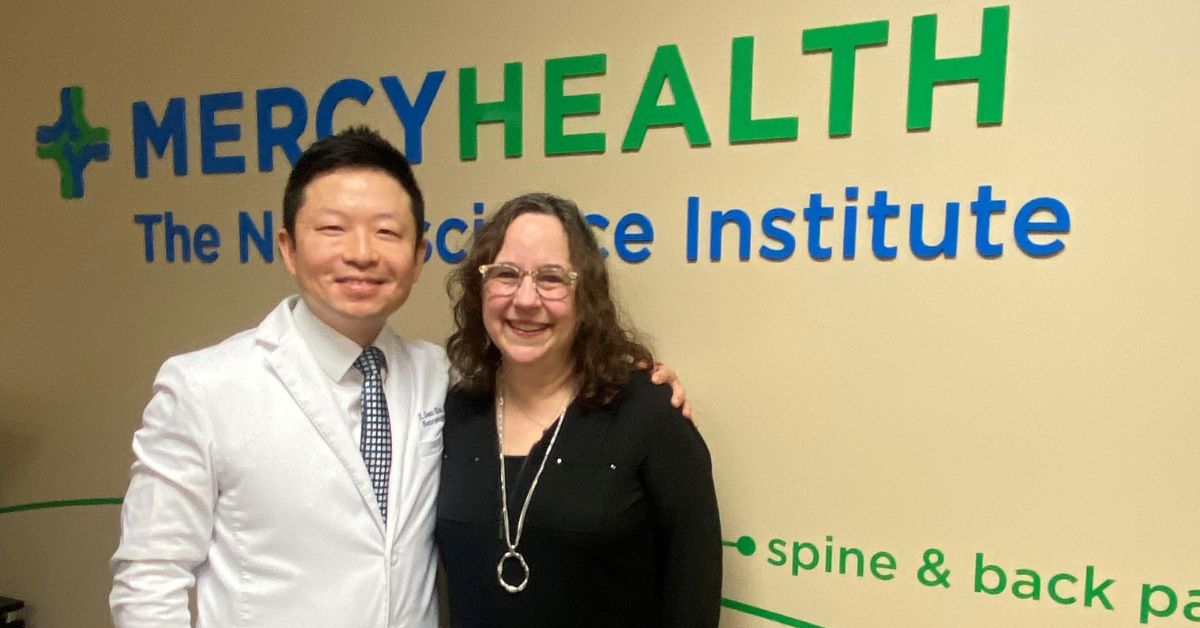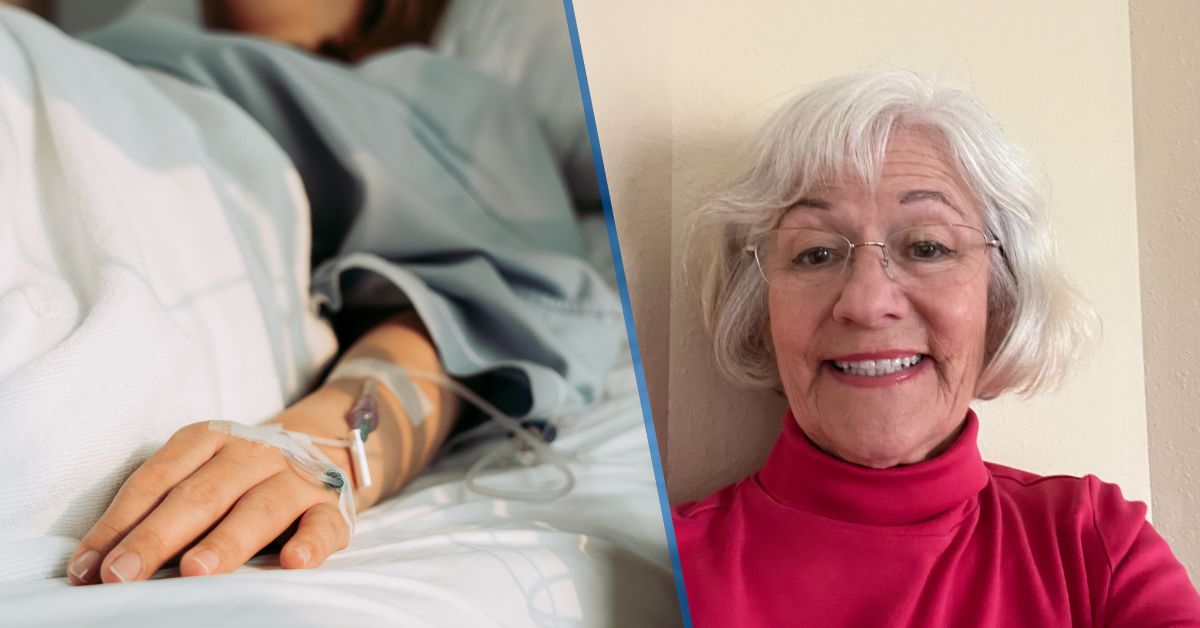Being aware of your overall health includes taking care of your mental health.
Focusing on mental health can increase productivity, enhance self-esteem and improve relationships. And to help those struggling with mental health, our ministry offers alternative treatment options for severe major depressive disorder, mania and other chronic mental health disorders.
Major depressive disorder is a serious mental illness that affects how people feel, think and go about their everyday life. The condition can also impact a person’s sleep habits, increase or decrease appetite and the overall ability to enjoy life day to day.
For Amy Russell, these symptoms were a part of her daily life.
“Many days struggling with major depressive disorder and PTSD, I was unable to do daily chores such as making dinner and wanted to stay in bed,” Amy shares. “In social situations, I was not wanting to interact or even be around people for long periods of time.”
Many times, people may be ashamed of being labeled with a serious mental illness, causing them to suffer in silence rather than get help.
“Major depressive disorder is most commonly recognized as one or more periods of major depression, which can manifest as episodes characterized by a minimum of two weeks having an overall depressed mood, loss of interest and other symptoms such as sleep and appetite disturbances,” Lewis Spirtos, MD, medical director of outpatient services at Mercy Health – St. Elizabeth Youngstown Hospital, explains.
He continues, “while it’s normal to feel down from time to time in certain life situations, when symptoms of major depression persist and cause functional impairment it may be time to seek professional help with medications and/or cognitive therapy.”
Highly trained health care professionals can provide the best treatment options for patients.
One such treatment is esketamine (Spravato™), a prescription medication used with oral antidepressants to treat adults with treatment-resistant depression. Esketamine is a nasal spray used under the supervision of a health care provider in an outpatient health care setting and often used in conjunction with other antidepressants. Those who can benefit from esketamine are adults with major depressive disorder that has been resistant to other treatments.
“Since my depression had been untreatable after a couple of years and I had been through a variety of medications, Spravato seemed like an option that would be effective,” Amy says. “After talking with Dr. Spirtos and researching, I decided it was worth the try. Now, after 18 sessions at St. Elizabeth Youngstown Hospital, I can say I have seen an improvement mentally.”
Amy adds, “overall, I’m doing more. My kids have even noticed a difference from the days when I would live in bed, but now I can do other activities around the house that I was not able to do before. Even some social aspects have improved after taking Spravato, such as living comfortably in my own skin.”
Transcranial magnetic stimulation (TMS) is another form of therapy offered at St. Elizabeth Youngstown Hospital that helps the symptoms of major depressive disorder by stimulating the brain with electrical impulses. This non-invasive procedure allows medical professionals to increase the electrical activity in the prefrontal cortex, where underactivity can lead to symptoms of anxiety or depression.
Usually, both Spravato and TMS are both discussed with the patient to understand the best course of action on a case-by-case basis.
“Every case is different, and we recognize nothing is going to work 100 percent of the time,” Dr. Spirtos shares. “However, we have seen significant improvements in the outcomes of patients, most often seen on their depression screening scores, which shows the decline in symptoms with treatment.”
“While antidepressant medications and other forms of therapy, such as Spravato and transcranial magnetic stimulation, offer help to patients, it is also important to implement self-care practices and proper exercise to promote the overall wellbeing of an individual,” he adds.
Luckily, depression is one of the most common and most treatable mental health disorders.
With early, continuous treatment, people can gain control of their symptoms, feel better and get back to enjoying their lives using therapy, medication and partnership with their primary care provider or a behavioral health specialist. However, it is important to remember that the first step is asking for help!
“For those thinking about trying Spravato, my advice is to be patient and give yourself grace,” Amy states. “It can be overwhelming to try new treatments, but I feel it is worth going through this process when compared to other outcomes with major depressive disorder. While I don’t think all experiences will be the same, the support from Mercy Health and my family that I’ve received has been helpful in this treatment process.”
Learn more about the behavioral and mental health services we provide at Mercy Health.


